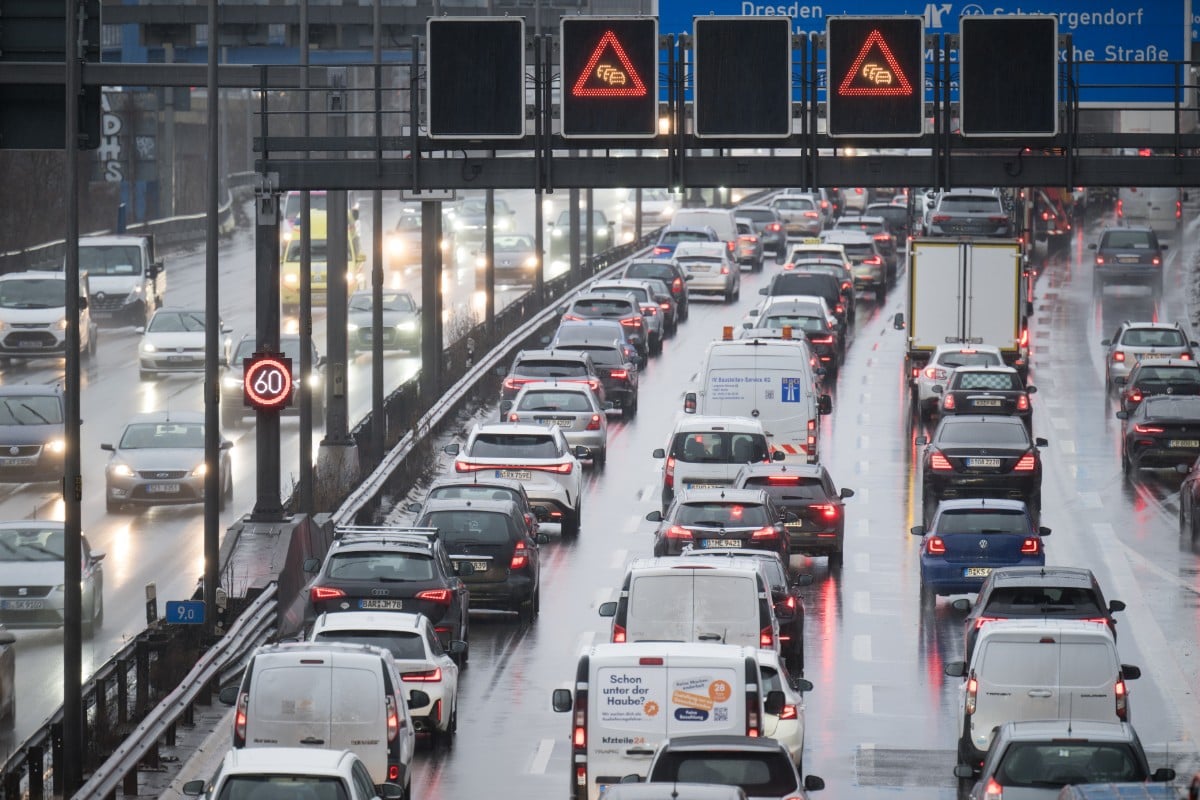Drivers in Germany already saw rising costs at the pumps at the start of this year.
Now Germany's largest motoring association, the ADAC, has warned that it will get even more expensive in the coming years.
Experts say that's due to expected increases in the carbon dioxide (CO2) tax - a special levy designed to reduce carbon emissions - which is undergoing reform.
The CO2 tax already went up from €45 per tonne of CO2 to €55 per tonne on January 1st this year, adding around three cents extra to a litre of petrol and diesel.
READ ALSO: Why drivers in Germany are seeing a spike in the cost of petrol
ADAC President Christian Reinicke said experts are estimating the CO2 price to rise again from next year and then significantly in the following years.
"Similar to this year, we are assuming a maximum price increase of 3 cents for petrol and 3.1 cents for diesel in 2026," he said.
From 2027 and in the coming years years, the automobile club expects further increases of up to 19 cents per litre of petrol and diesel - depending on how quickly progress is made on climate protection.
Reform of emissions trading to affect CO2 tax
Germany is to become climate-neutral by 2045 so that international climate targets can be met with the aim of avoiding the worst consequences of global warming.
To achieve this, emissions of climate-damaging CO2 have to be significantly reduced, and that's where the tax comes in.
It has been rising steadily at a national level since it was introduced in 2021. The costs are usually passed onto consumers, for instance at the gas station.
But soon the previously fixed German CO2 price on petrol, natural gas and heating oil is to be transferred to a European emissions trading system.
According to the German Fuel Emissions Trading Act, a price corridor with a minimum price of €55 per emissions certificate and a maximum price of €65 per emissions certificate will be set for 2026.
But from 2027, CO2 emissions trading for building heating and the transport sector will be introduced across the EU. This has previously applied to the industry and the energy sector.
German fuel emissions trading under the current law will be replaced by the EU system, and the CO2 price will then be set on the market.
Amendments to this law in Germany have already been passed by the Bundestag.

Increases in the CO2 tax are intended to provide an incentive to be more economical and to switch to climate-friendly technologies, such as electric cars or more climate-friendly heating systems.
READ ALSO: How the FDP's pro-car programme is stoking old debates in Germany
Experts call for financial support for consumers
European emissions trading could in principle provide effective incentives for moving to low-emission mobility options, said ADAC President Reinicke.
"However, because many people are still unable to switch to alternatives to cars, electromobility or climate-neutral fuels, politicians must reliably and effectively cushion the rising CO2 price from 2027," he said.
Reinicke called for the incoming German government - which will be decided at the February 23rd nationwide vote - to adopt relief measures urgently if it wants to maintain acceptance among the population for climate protection measures.
Part of the revenue from the CO2 tax should be refunded to people via Klimageld (climate money), with a focus on low-income residents, said the ADAC boss.
People who travel to work by car will be particularly hard-hit, said Reinicke. He called for the commuter allowance (Pendlerpauschale) to be increased.
"It is crucial that the German government ensures that the revenue from emissions trading is also used in full for targeted relief for affected consumers," Kerstin Andreae, Chairperson of the Executive Board of the German Association of Energy and Water Industries, told Germany's Tagesschau.
Andreae suggested this could take the form of Klimageld or other subsidies to incentivise green options.
The idea of a Klimageld has been discussed by politicians in Germany for years - and was even written in the coalition agreement of the previous 'traffic light' government led by Chancellor Olaf Scholz (SPD). But it has never been implemented.
Andreae said the uncertainty creates concerns.
"It is still unclear at what price the European CO2 certificates will be traded from 2027," said Andreae. "This is particularly problematic for energy suppliers because the costs for emissions trading have to be shown separately on the bill, but they are already concluding contracts for 2027/28."
The uncertainty about the price level creates economic risks for suppliers, she added.

Comments